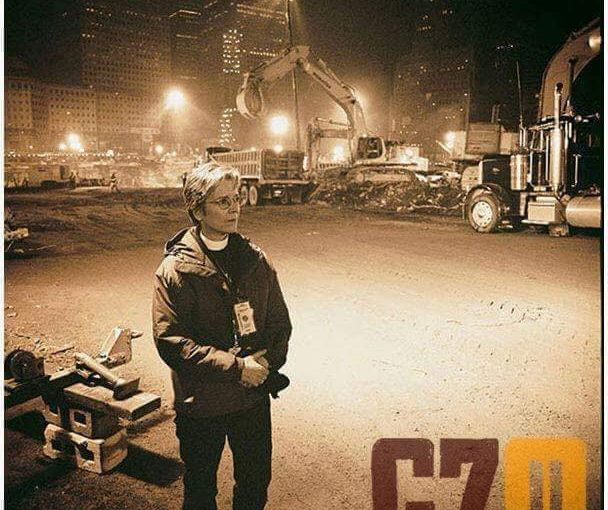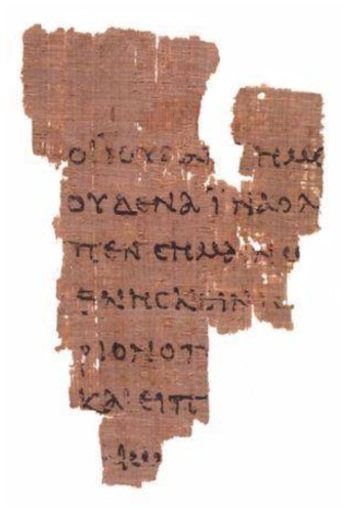[Jesus] also said, “The kingdom of God is as if someone would scatter seed on the ground, and would sleep and rise night and day, and the seed would sprout and grow, he does not know how. The earth produces of itself, first the stalk, then the head, then the full grain in the head. But when the grain is ripe, at once he goes in with his sickle, because the harvest has come.” He also said, “With what can we compare the kingdom of God, or what parable will we use for it? It is like a mustard seed, which, when sown upon the ground, is the smallest of all the seeds on earth; yet when it is sown it grows up and becomes the greatest of all shrubs, and puts forth large branches, so that the birds of the air can make nests in its shade.” With many such parables he spoke the word to them, as they were able to hear it; he did not speak to them except in parables, but he explained everything in private to his disciples.
Mark 4:26-34
My sermon from 4th Sunday after Pentecost (June 17, 2018) on Mark 4:26-34. Listen to the recording at the bottom of the page or read my manuscript below.
****************************
Do you think Jesus was funny?
Last week, our reading according to Mark had folks saying that Jesus “was out of his mind.” Now, that’s a kind of funny but it’s not the funny I’m thinking about. Instead, I want to know if Jesus told jokes. Like, when he sat around the campfire in the middle of the Judean desert, after having left one village where he casted out demons and before he walked into the next – did Jesus unwind by telling everyone a funny story? The odds are good that he probably did. And if we take a look at his life as shared by Mark, Matthew, Luke, and John – Jesus probably needed a sense of humor just to get through it all. His life, from the very beginning, was full of the kinds of stories we tell over and over again. There were incredible joys, like when magi from the east came to visit him when he was merely a baby. But there was also terror, like when his family fled to Egypt as refugees, escape King Herod and the government’s violence. Jesus life, I think, needed humor and laughter to help carry him to the next part of his story. So I’m sure Jesus laughed. And when he was at the countless campfires and dining room tables Scripture doesn’t tell us about, I’m sure he told funny stories. Yet we rarely, as a church, talk about Jesus as being funny. We rarely listen to the stories he tells and expect to laugh. Instead, we assume that everything Jesus says must be very deep and full of a kind of spiritual flavoring that strips his words of most human emotions. We don’t let Jesus get angry or tell a joke. We demand that every word Jesus says sounds like what we imagine “holiness” to be. Because it’s easy to say that Jesus is the Son of God. But it’s harder to say that Jesus was also a human being. And human beings, when they speak, aren’t always as holy or reverent or spiritual as we would like them to be. Sometimes a person gets angry. Sometimes they yell. Sometimes people cry and sob and we can’t understand a word their saying because of their tears. Our words are filled with a variety emotions. And today, in our reading from the gospel according to Mark, Jesus tells a joke.
Now the joke is subtle but it’s there. And it involves that mustard seed. Jesus starts his story by saying that the kingdom of God – God’s dream for what world can be – is like a mustard seed that is put into the ground. Jesus, like all good storytellers, ramps up the drama by claiming that the mustard seed is the smallest of all seeds (even though it’s not) and when the seed grows, it multiplies and becomes something huge. This tiny seed grows…and grows…and grows until it is something so big that even birds can make their home in it. The mustard seed is amazing because it can grow into something bigger than itself. But this is where Jesus’ joke shows up. And we miss seeing that joke when we focus only on the seed’s size. We marvel at how big the seed grows but we forget what the seed is. It’s a mustard seed. Now, I like mustard; I like it with pretzels; and I know that the mustard plant served all sorts of medicinal purposes back in Jesus’ day. But it’s still mustard, and in Jesus’ day, this was a normal everyday plant that grew like a weed. It didn’t need much soil or sun or water to take root. And once it did, good luck trying to get rid of it. This weed would dig in, sprout more versions of itself, and keep growing. And it would grow and grow and grow until it was the greatest of all shrubs. Now, that shrub would be big – maybe 10 feet high. But a shrub is still just a bush. When you imagine what heaven on earth would look like, what this kingdom of God might be, does it resemble the beauty, girth, and strength of a well manicured house plant? Probably not. And even scripture, when it imagines God’s kingdom, usually talks about a tree. Because a tree can be huge. A tree is full of life and it becomes a home for all kinds of animals, from squirrels to birds to rabbits who live in its roots. In the book of Revelation, the final image of God’s kingdom on earth includes a giant tree that grows 12 different kinds of fruit. A tree is something tall, strong, mighty, and majestic. And when we imagine the kingdom of God, it should include everything a powerful tree symbolizes. And that usually doesn’t involve shrubbery.
Jesus, in this short parable, takes aim at the assumptions we bring when we encounter him. We want God’s kingdom to be mighty, strong, and overwhelming. We want Jesus’ presence to show up in a way that’s spectacular and in a way that stands up to the test of time – just like the best oaks or elms or cedar trees do. We want our faith to be precious and expensive – like a vintage of wine that comes from only the very best grapes. We come to Jesus with the expectation that his presence and our faith will be obvious, mighty, and important. And when it’s not, we then wonder if maybe there’s something wrong. Or maybe Jesus doesn’t really care about me. Or maybe Jesus isn’t important at all. We come to scripture, to Jesus, and to our faith with expectations and assumptions. And we need to know what those things are. Because when we don’t, we let our broken expectations define our faith rather than letting our faith grow into what Jesus’ expectations for us actually are.
Which means we need to let Jesus tell jokes. And we need to be ready to laugh when he does. Because the kingdom of God is really like an ordinary weed that pops up, is hard to remove, and it will get into everything. Our expectations and assumptions will be re-written by this Jesus who shows up in our every day. Jesus is going to be everywhere, even in the smallest moments of our lives. He’s going to be present in every one of our interactions. And he’s going to show up in our relationships. He will re-oriented our desire and expectation for what is mighty, strong, and powerful; and he will show us that when we are at our most vulnerable, when we are our most human, that’s when we can see the kingdom of God in our midst. The kingdom of God is present in the ways we listen, care, and empathize with each other. The kingdom of God comes close to us when we are a Jesus – not only to those we adore but also to those we don’t. It’s in the everyday moments of love and care for the other – for the vulnerable, the sick, the poor, the marginalized, the migrant, the old, the young, and all their families – it’s in those moments when the kingdom of God pops up to show us just who God is. The Christian faith is an everyday kind of faith. It’s a faith meant to be lived and experienced. And it’s a faith that’s not only for the perfect – but it’s also for imperfect people like us. When we follow Jesus, when we leave our assumptions about what he says and how he says it – behind, we discover that the faith he gives us is one that unravels all our expectations. And this faith gets into every nook and cranny of our body, mind, and soul – and it will be a way of life for us that will change us, so that we can love others in ways we never imagined possible before.
Amen.
Podcast: Play in new window | Download









